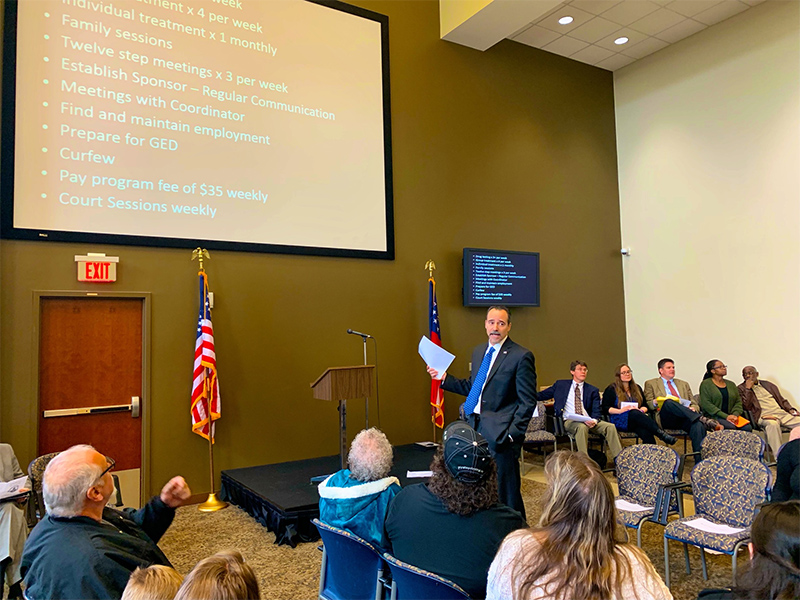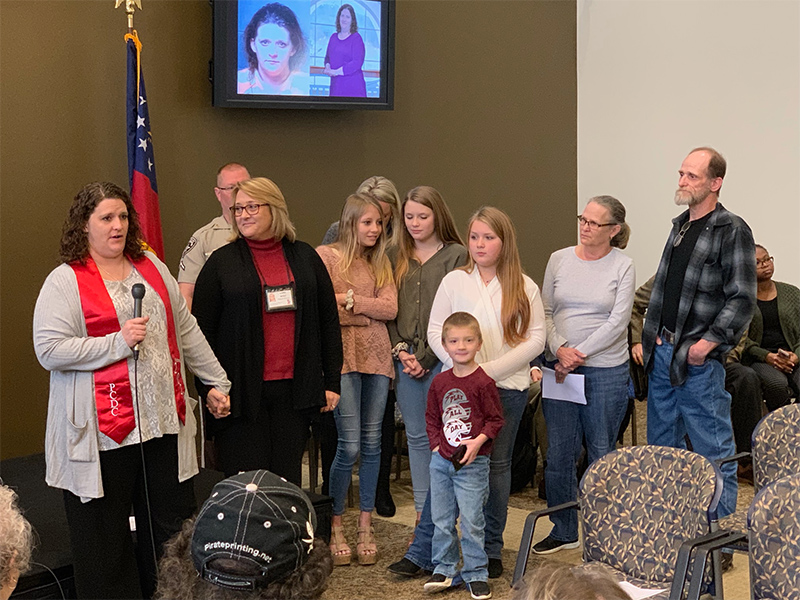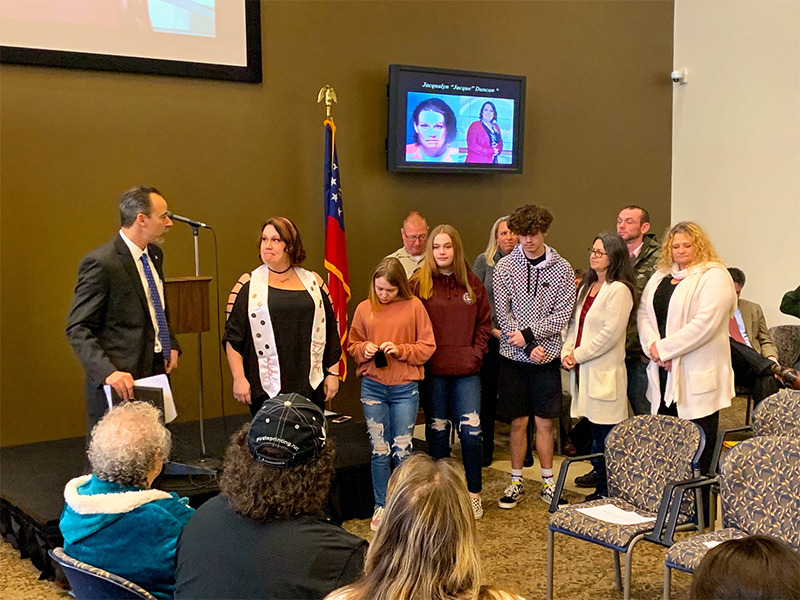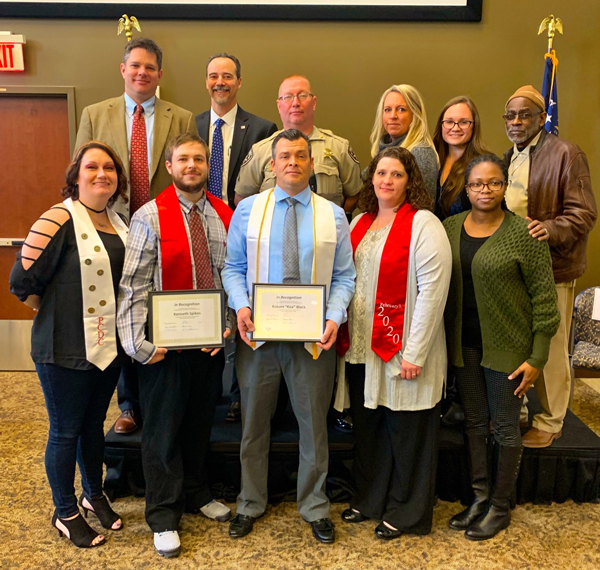Paulding County Drug Court Graduation Feb. 2020
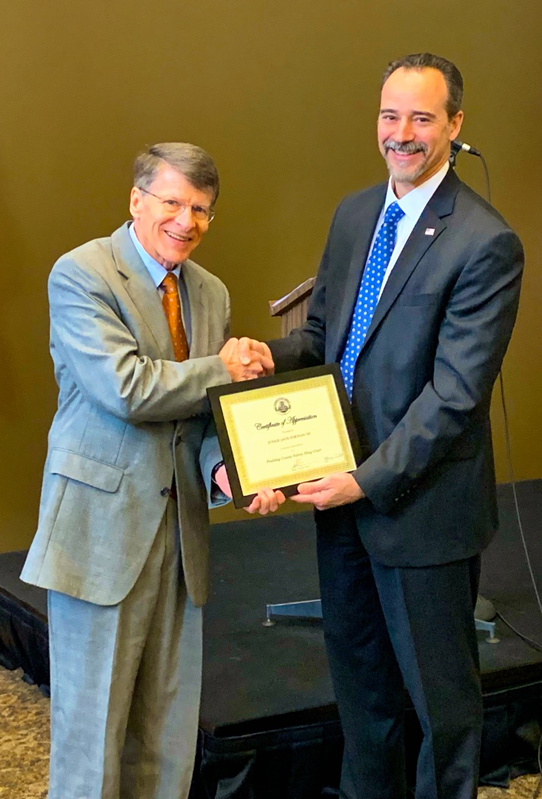 Friday, February 7, 2020, Paulding Courthouse at the Watson government complex received the first court graduation of the year. Judge Dean Bucci has been responsible for pursuing the program here in Paulding County. Judge Bucci was impressed with the original drug court model of Judge Jack Partain III and chose it as the model that was implemented here in Paulding County. Judge Partain was in attendance as a guest speaker for the graduation ceremony and was presented with a certificate of appreciation by Judge Bucci.
Friday, February 7, 2020, Paulding Courthouse at the Watson government complex received the first court graduation of the year. Judge Dean Bucci has been responsible for pursuing the program here in Paulding County. Judge Bucci was impressed with the original drug court model of Judge Jack Partain III and chose it as the model that was implemented here in Paulding County. Judge Partain was in attendance as a guest speaker for the graduation ceremony and was presented with a certificate of appreciation by Judge Bucci.
Attending the graduation ceremony are over 125 guests and family members. In turn, each graduate recounted their experience and plans for the future. They introduced their parents, spouses, children, and other family members. All of whom were credited with the support integral to achieving and maintaining sobriety.
Since January 2016 there have been 94 participants in the program. Of these, 30 have graduated and 41 are active participants. This graduation ceremony will see five participants join the ranks of those who have graduated.
Those who enter the Program are facing criminal charges or probation revocations, and they usually enter directly from jail. The Drug Court Team evaluates candidates based upon their criminal and addiction history. If admitted, a participant faces an immediate lifestyle change. Participants must attend group treatment Monday through Thursday, monthly individual and family treatment sessions, 12-Step classes, and more. They must keep a curfew, prepare for their GED if they do not have a diploma, pay a supervision fee, and attend court every Friday. The minimum length of the Program is eighteen months, but it usually takes at least two years to complete. Graduation is never guaranteed.
Participants are required to earn the right to advance through the five phases of the program. Those who are expelled from the program typically have their probation revoked and face a likely prison sentence. The Program is funded by a State grant which requires a local ten-percent match. The match is paid from the County DATE (Drug Abuse Treatment and Education) fund. Drug Court programs are credited with reducing recidivism.
